
Kata: A Tropical Paradise in Phuket
Nestled on the southwestern coast of Phuket, Kata is a charming neighbourhood that beckons travelers with its pristine beaches, vibrant nightlife, and rich cultural heritage. Kata Beach, with its soft golden sands and clear turquoise waters, is a haven for sunbathers and water sports enthusiasts. Whether you are interested in surfing, snorkeling, or just relaxing by the sea, Kata Beach offers a perfect setting for all. Beyond the beach, Kata boasts a lively local scene with an array of dining options, from street food stalls to high-end restaurants. The local markets are a great place to explore, offering everything from fresh seafood to handmade crafts. In the evenings, Kata transforms into a vibrant hub with its bustling bars and nightclubs, providing a taste of Phuket's famous nightlife. For those interested in culture, Kata is home to several temples and cultural sites that offer a glimpse into the island's rich history and traditions. The Big Buddha, a towering statue located on a hilltop, provides breathtaking views of the surrounding area and is a must-visit landmark. Additionally, the area is dotted with wellness centers and spas, making it an ideal destination for relaxation and rejuvenation.
Local tips in Kata
- Visit Kata Beach early in the morning for a peaceful experience before the crowds arrive.
- Try local seafood at the Kata Night Market for an authentic culinary experience.
- Wear comfortable shoes if you plan to visit the Big Buddha, as it involves a bit of walking.
- Book a surfing lesson at one of the local surf schools; Kata Beach is perfect for beginners.
- Don't miss the sunset at the Kata Viewpoint for a panoramic view of the coastline.
Kata: A Tropical Paradise in Phuket
Nestled on the southwestern coast of Phuket, Kata is a charming neighbourhood that beckons travelers with its pristine beaches, vibrant nightlife, and rich cultural heritage. Kata Beach, with its soft golden sands and clear turquoise waters, is a haven for sunbathers and water sports enthusiasts. Whether you are interested in surfing, snorkeling, or just relaxing by the sea, Kata Beach offers a perfect setting for all. Beyond the beach, Kata boasts a lively local scene with an array of dining options, from street food stalls to high-end restaurants. The local markets are a great place to explore, offering everything from fresh seafood to handmade crafts. In the evenings, Kata transforms into a vibrant hub with its bustling bars and nightclubs, providing a taste of Phuket's famous nightlife. For those interested in culture, Kata is home to several temples and cultural sites that offer a glimpse into the island's rich history and traditions. The Big Buddha, a towering statue located on a hilltop, provides breathtaking views of the surrounding area and is a must-visit landmark. Additionally, the area is dotted with wellness centers and spas, making it an ideal destination for relaxation and rejuvenation.
Iconic landmarks you can’t miss
The Big Buddha, Phuket
Explore the iconic Big Buddha of Phuket, a serene Buddhist temple offering breathtaking views and spiritual tranquility on your tropical adventure.
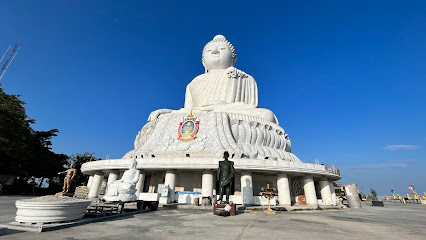
Karon View Point
Experience the stunning views of Karon View Point, where the beauty of Phuket's coastline and Andaman Sea come together in a breathtaking panorama.
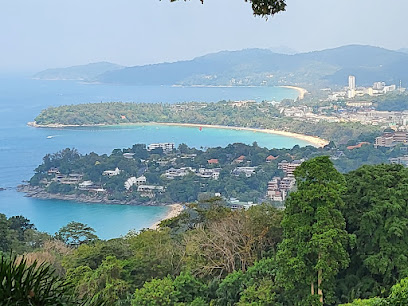
Kata Night Market
Explore the vibrant Kata Night Market in Phuket, where delicious street food meets unique local crafts in a lively atmosphere.
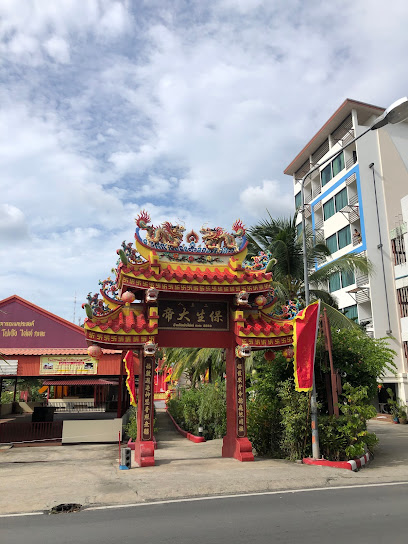
Kata Beach Community Park
Experience the lush tranquility of Kata Beach Community Park, a serene retreat in Phuket, perfect for relaxation, picnics, and breathtaking sunset views.
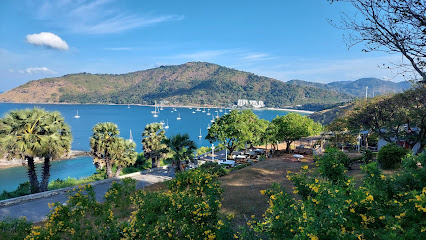
Kata Walking Street at The Beach
Discover the vibrant atmosphere of Kata Walking Street, a night market in Phuket where delicious street food, unique crafts, and lively entertainment await.
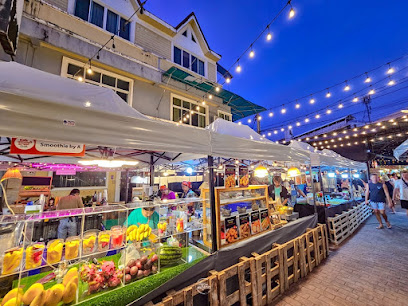
Kata Beach Viewpoint
Discover the stunning vistas of Kata Beach Viewpoint, a serene escape showcasing the beauty of Phuket's coastline and breathtaking sunsets.
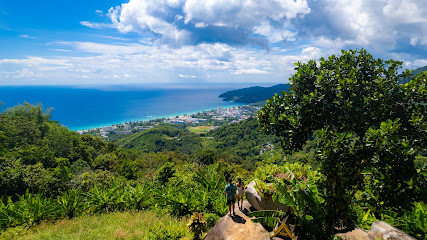
Kata Noi Viewpoint
Discover the breathtaking Kata Noi Viewpoint in Phuket, where stunning sea views and vibrant sunsets await every traveler.
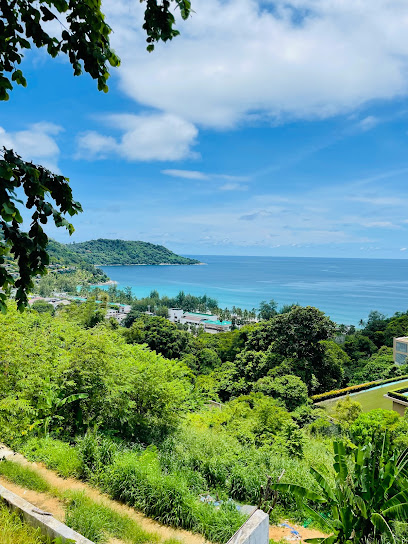
Khun Pradit house viewpoint and food
Discover the perfect blend of breathtaking views and authentic Thai cuisine at Khun Pradit House Viewpoint and Food in Karon, Phuket.
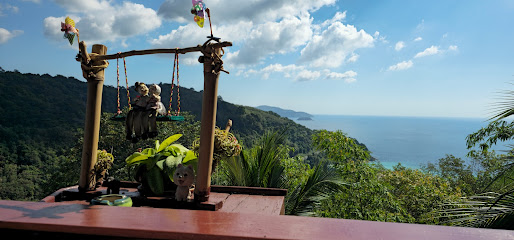
Kata graffiti 2
Explore the vibrant murals of Kata Graffiti 2 in Karon, Phuket, where art and culture blend to create an unforgettable outdoor experience.
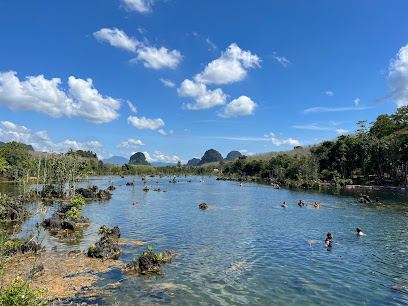
Kata graffiti 3
Discover the vibrant street art at Kata Graffiti 3 in Phuket, where creativity meets culture in a stunning open-air gallery of murals.
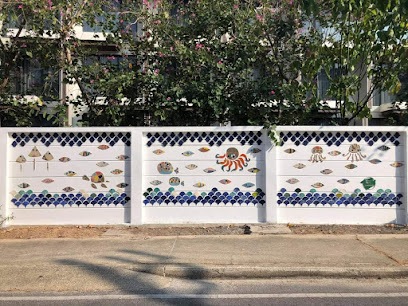
Unmissable attractions to see
Kata Night Market
Discover the flavors and vibrant culture of Phuket at Kata Night Market, a must-visit destination for an authentic Thai experience.
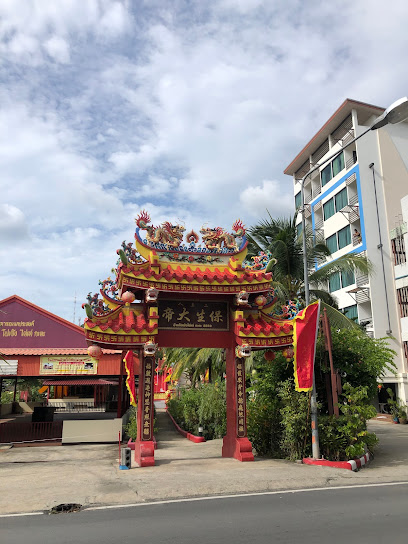
Dive Today Kata Beach Meeting Point for Scuba Divers
Explore the vibrant underwater world at Dive Today Kata Beach, your gateway to unforgettable scuba diving experiences in Phuket's stunning marine paradise.
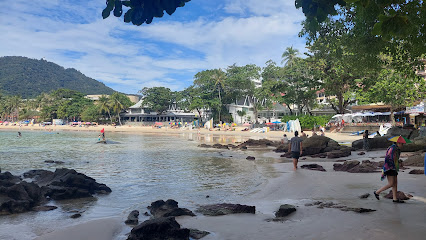
Kata graffiti 2
Explore Kata Graffiti 2 in Phuket, where vibrant street art meets local culture in an open-air gallery of creativity.
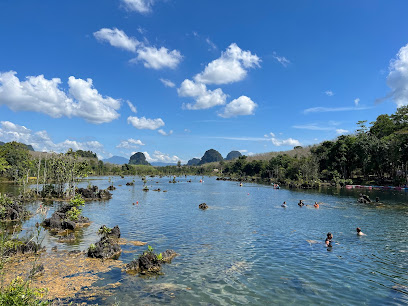
Jimmy kata surf phuket
Ride the waves at Jimmy Kata Surf Phuket, where every surfer, from beginner to expert, finds their perfect wave in a breathtaking beach setting.
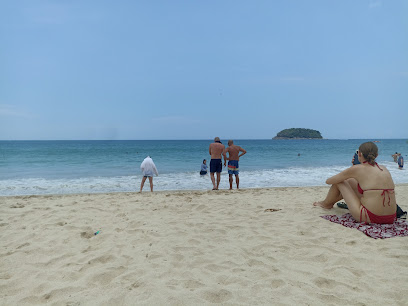
Kata Beach Shore Dives Meeting Point
Explore the vibrant underwater paradise at Kata Beach Shore Dives, where adventure meets natural beauty in Phuket's stunning marine landscapes.
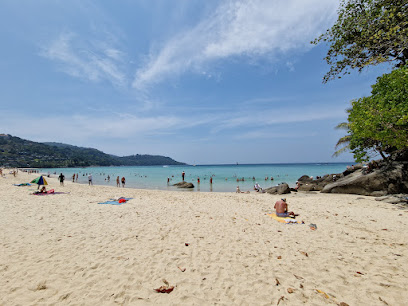
Nueng Andaman Tour & Travel By Jenny
Explore the breathtaking beauty of Phuket with personalized tours at Nueng Andaman Tour & Travel By Jenny, your gateway to unforgettable adventures in Thailand.
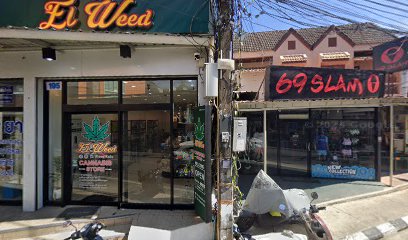
Brightly Phuket Tour
Explore Brightly Phuket Tour: A vibrant hub of adventure, culture, and unforgettable experiences in the heart of Karon, Phuket.
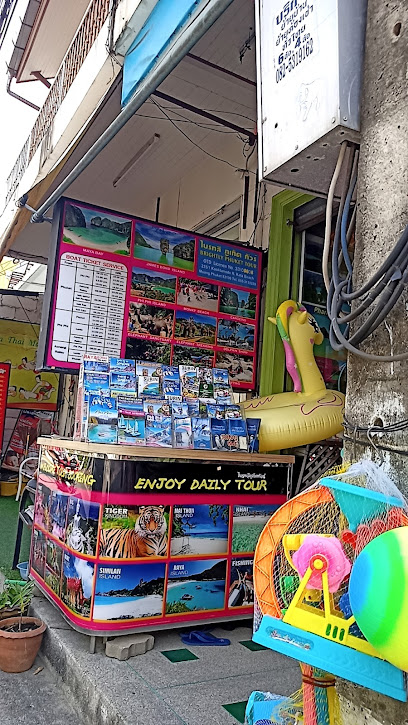
La-Lan-Tar (ละลานตา)
Experience authentic Thai cuisine at La-Lan-Tar in Karon, Phuket, where fresh ingredients meet traditional flavors in a warm, inviting atmosphere.
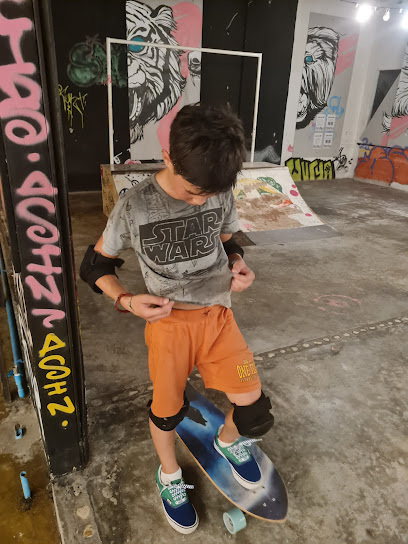
Kata graffiti 3
Explore the captivating street art at Kata Graffiti 3 in Phuket, where creativity meets the stunning coastal backdrop of Thailand.
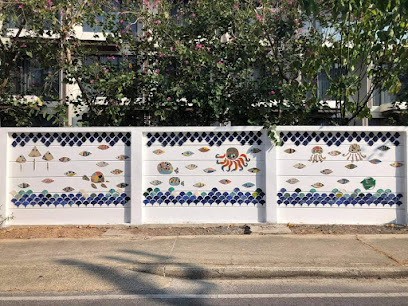
Essential places to dine
Sugar and Spice Restaurant and Inn
Discover the perfect blend of Thai, Italian, and Western cuisines at Sugar and Spice Restaurant in Phuket—where every meal is a delightful experience.

Food Market kata Restaurant
Discover exquisite seafood and authentic Thai cuisine at Food Market Kata in Phuket - a must-visit culinary destination for every traveler.
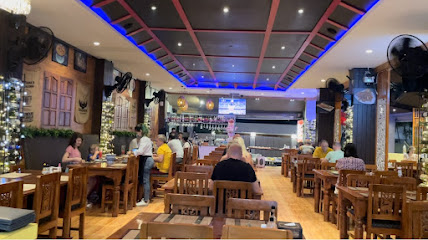
Eightfold
Discover authentic Thai flavors at Eightfold in Karon, Phuket - where every dish tells a story.
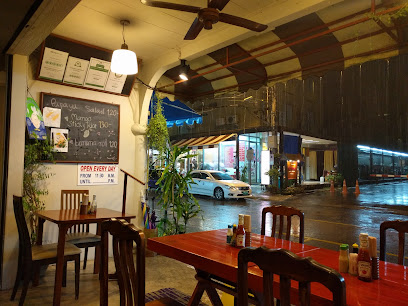
Palm Square
Discover the vibrant culinary landscape at Palm Square in Karon with diverse dining options from Thai to Italian amid live music.
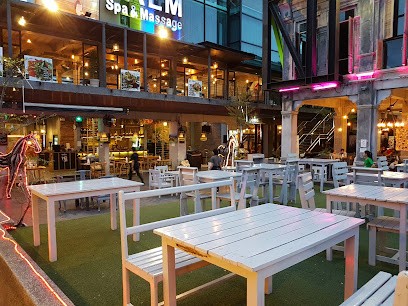
Issara Restaurant & Bar
Discover the perfect blend of traditional Thai flavors and modern cuisine at Issara Restaurant & Bar in Karon, Phuket.
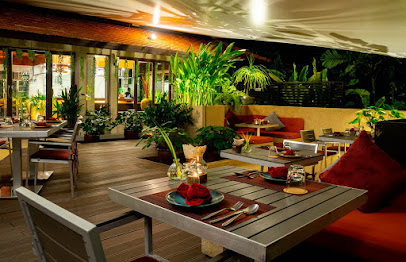
Outdoor Restaurant
Experience exquisite dining at Outdoor Restaurant in Karon, Phuket - where delicious food meets stunning natural beauty.
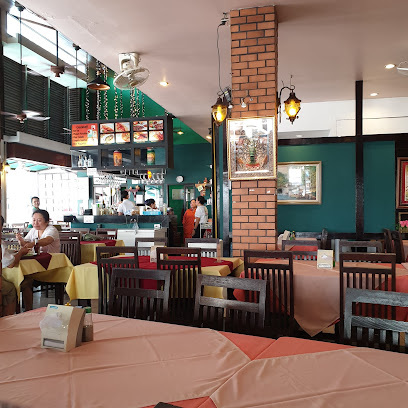
Spice by Sugar and Spice Restaurants
Discover the authentic taste of Thailand at Spice by Sugar and Spice Restaurants in Karon, Phuket - where every dish tells a story.
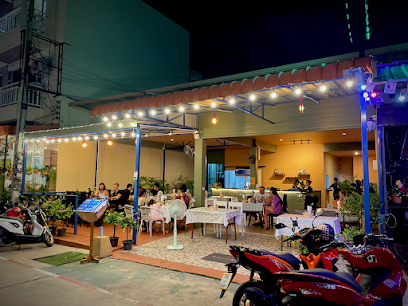
Boathouse Restaurant
Experience exquisite dining at Boathouse Restaurant in Phuket with stunning ocean views and authentic Thai flavors.
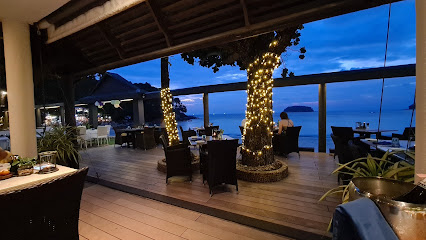
Kata street food
Experience authentic Thai street food at Kata Street Food in Karon - a culinary adventure that delights every palate.
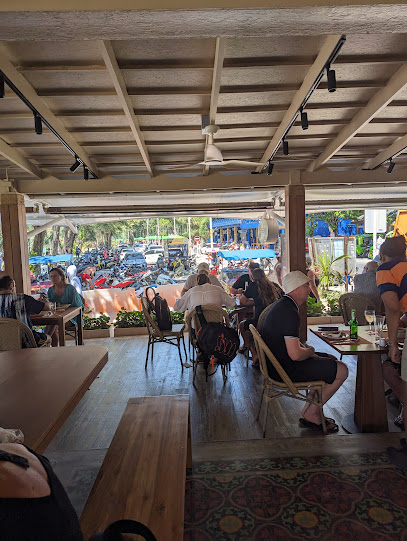
ร่ำรวย
Experience authentic Thai cuisine at ร่ำรวย in Karon, Phuket – where tradition meets taste in every delicious bite.

Markets, malls and hidden boutiques
Kata Night Market
Experience the vibrant culture of Phuket at Kata Night Market, where local cuisine and unique shopping come together in a lively atmosphere.
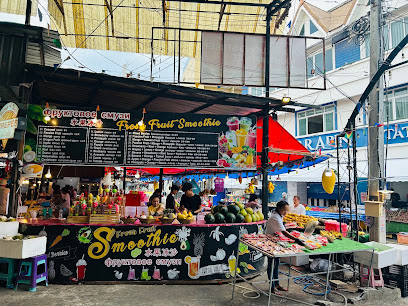
Green Garden Kata | Cannabis Dispensary Weed Shop
Discover the ultimate cannabis experience at Green Garden Kata – your go-to shop for wellness, relaxation, and organic delights in Phuket.
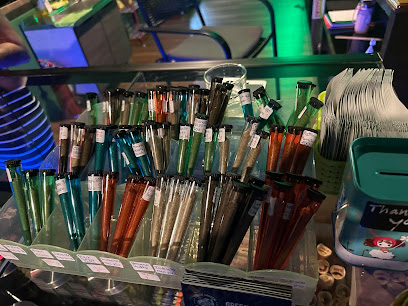
Kata Night Plaza
Experience the vibrant shopping and dining scene of Kata Night Plaza, where local flavors and unique finds await every traveler.
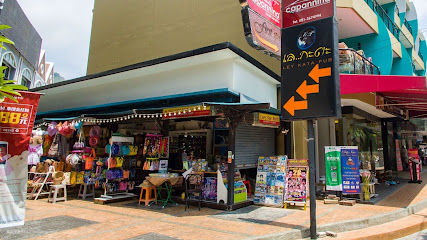
EXTIX Premium Cannabis Dispensary & Weed Shop - Kata Beach
Explore the vibrant cannabis culture at EXTIX Premium Cannabis Dispensary, Kata Beach's leading destination for top-quality products and expert guidance.
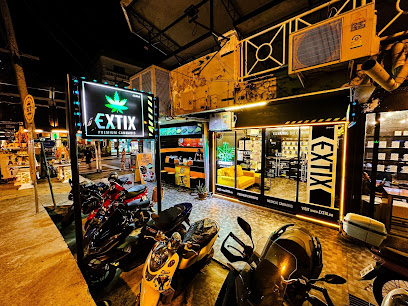
Cannabis club Botanic
Experience the best of cannabis culture at Cannabis Club Botanic in Karon, Phuket, where relaxation meets quality and knowledge.
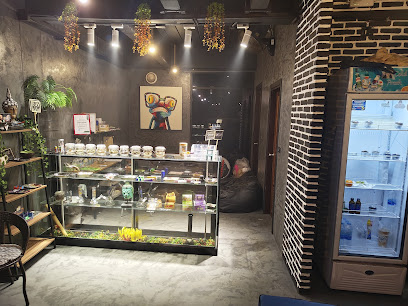
Greenland 420 - Phuket's best weed - Kata Shop - Weed2Go
Experience the best of cannabis culture at Greenland 420 - Phuket's premier cannabis store offering premium products in a vibrant setting.
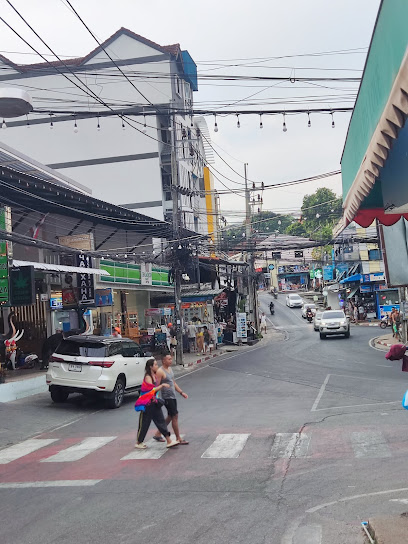
Surf House (Kata Beach)
Explore Surf House in Kata Beach for the ultimate beach fashion experience, featuring surf-inspired apparel and accessories in a vibrant coastal setting.
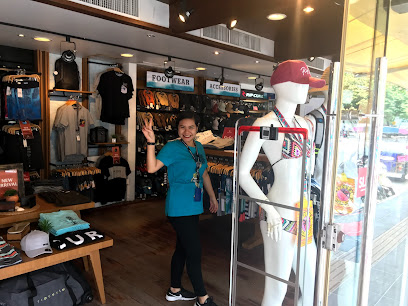
Green Lantern Kata | Weed - Cannabis Dispensary Store Shop
Discover quality cannabis products at Green Lantern Kata in Karon, Phuket, where expert guidance meets a welcoming atmosphere.
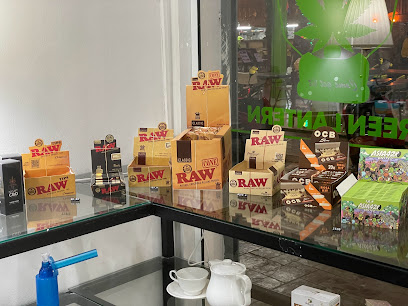
Pashtoosh art gallery 2
Explore the Pashtoosh Art Gallery in Karon, Phuket for unique local artworks and vibrant souvenirs that capture the spirit of Thailand.
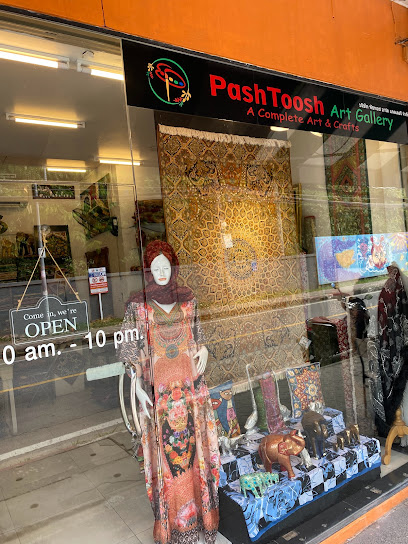
Quiksilver
Explore the vibrant world of Quiksilver in Karon, Phuket, where surf culture meets stylish beachwear for every adventurer.
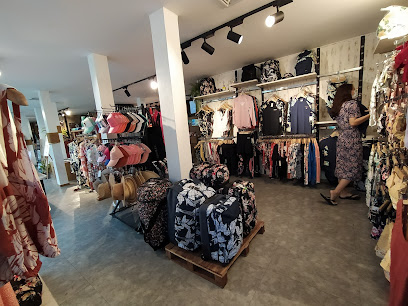
Oh La La! Bijouterie (KATA)
Explore Oh La La! Bijouterie in Kata, Phuket for unique gifts and handcrafted jewelry that capture the island's vibrant culture.
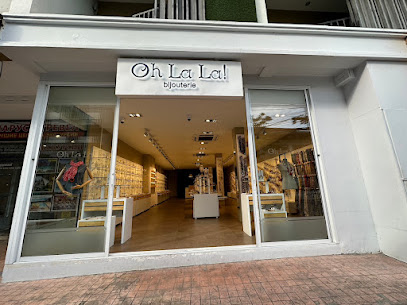
PASHTOSH ART GALLERY
Experience the vibrant art scene at Pashtosh Art Gallery in Karon, Phuket, a must-visit for art lovers and creative souls.
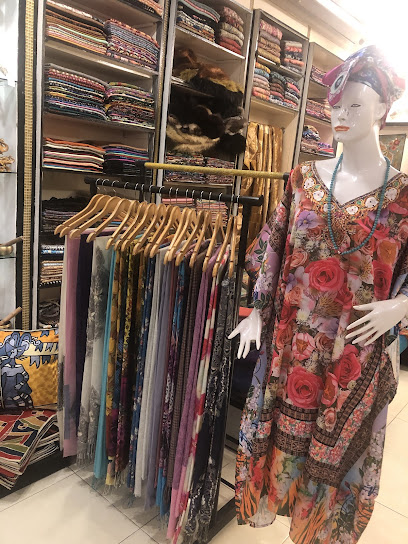
69Slam Kata Beach Shop
Explore vibrant beachwear at 69Slam Kata Beach Shop, the perfect spot for tourists to find stylish swimwear in Phuket.
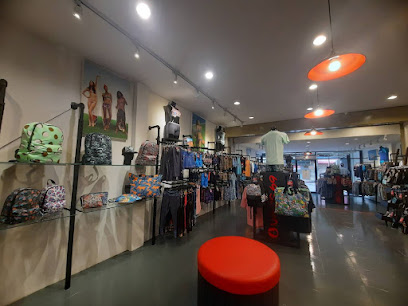
TPV PHUKET
Shop the latest trends and unique designs at TPV Phuket, your ultimate clothing destination in Kata Beach, Thailand.
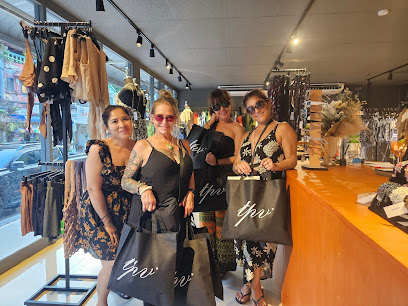
Kaanda beach life shop in Kata
Explore Kaanda Beach Life Shop in Kata for stylish beachwear and casual clothing, perfect for your Phuket adventure.
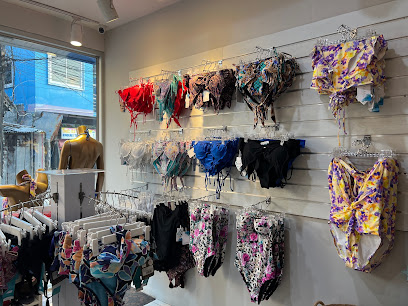
Essential bars & hidden hideouts
Ska Bar & Kata seafood Restaurant
Discover the vibrant flavors of fresh seafood and cocktails at Ska Bar & Kata Seafood Restaurant, a beachfront gem in Phuket.

After Beach Bar & Restaurant
Experience the ultimate beachside dining at After Beach Bar & Restaurant in Karon, Phuket, offering stunning views and delicious Thai cuisine.
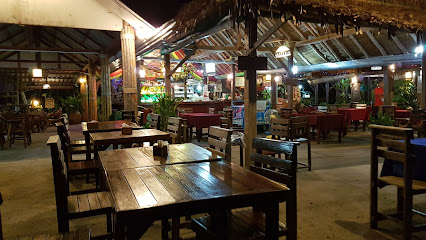
Palm Square
Discover a world of flavors at Palm Square, Phuket's vibrant culinary hub featuring Thai, Italian, Japanese, and more.
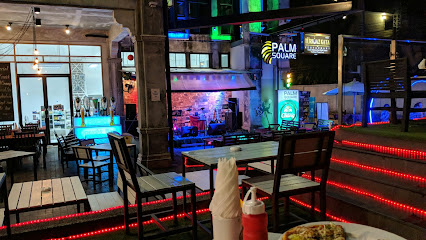
The Tavern
Discover The Tavern, a family-friendly sports bar in Kata Beach, Phuket, where delicious food meets an exciting sports atmosphere.
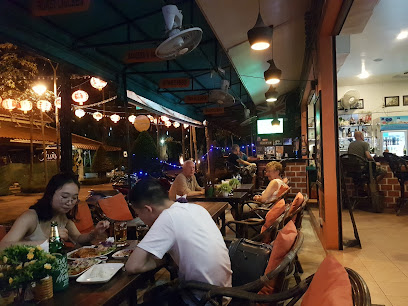
Back Cat's Bar
Experience the vibrant nightlife at Back Cat's Bar in Kata Beach, where cocktails and camaraderie come alive under the stars.
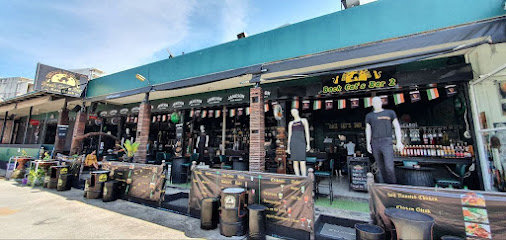
Ani Sport Bar Kata Beach Phuket
Experience the vibrant atmosphere of Ani Sport Bar at Kata Beach, where sports fans unite for thrilling games and refreshing drinks in Phuket's nightlife.
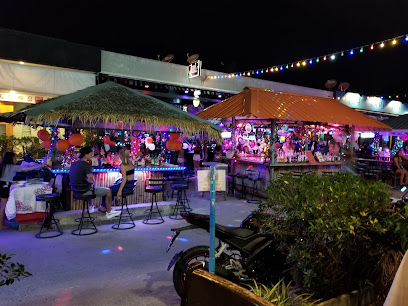
OATTO BAR
OATTO BAR in Karon, Phuket: Unwind with exceptional drinks in a lively atmosphere, perfect for a vibrant night out.
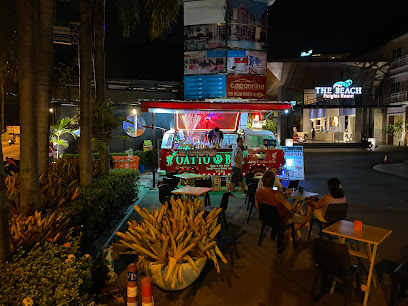
Grabbarnagrus Kata Beach
Experience the vibrant nightlife at Grabbarnagrus Kata Beach, where fun, drinks, and beach vibes come together in Phuket's lively atmosphere.
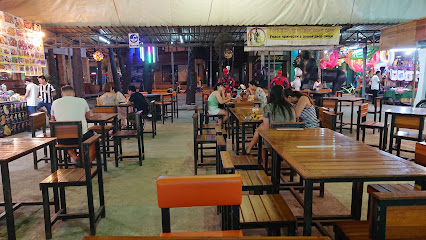
My Bar is Your Bar
Experience the vibrant nightlife of Phuket at My Bar is Your Bar, where delightful cocktails and tropical vibes await you in Kata Beach.
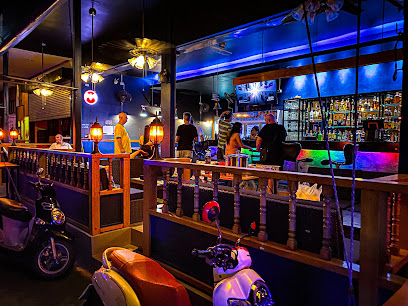
Namwhan Bar
Experience the lively ambiance of Namwhan Bar in Karon, Phuket, where refreshing cocktails and vibrant nightlife meet tropical bliss.
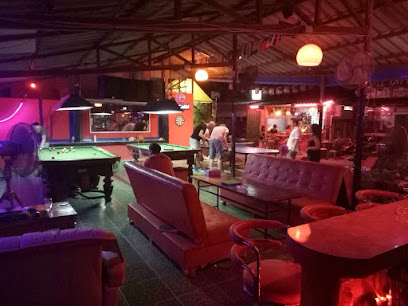
Local Phrases
-
- Helloสวัสดี
[sawasdee] - Goodbyeลาก่อน
[laa kon] - Yesใช่
[chai] - Noไม่
[mai] - Please/You're welcomeโปรด/ยินดี
[proht/yindee] - Thank youขอบคุณ
[khob khun] - Excuse me/Sorryขอโทษ
[khaw toht] - How are you?สบายดีไหม
[sabai dee mai] - Fine. And you?สบายดีครับ ท่านล่ะ
[sabai dee khrap than la] - Do you speak English?คุณพูดภาษาอังกฤษได้ไหม
[khun poot phasa angkrit dai mai] - I don't understandฉันไม่เข้าใจ
[chan mai khao jai]
- Helloสวัสดี
-
- I'd like to see the menu, pleaseขอดูเมนูหน่อยครับ
[khor doo menu noi khrap] - I don't eat meatฉันไม่กินเนื้อ
[chan mai gin nuea] - Cheers!ชนแก้ว
[chon kaew] - I would like to pay, pleaseขอจ่ายเงินหน่อยครับ
[khor jai ngern noi khrap]
- I'd like to see the menu, pleaseขอดูเมนูหน่อยครับ
-
- Help!ช่วยด่วน!
[chuay duan] - Go away!ไปออก!
[pai ok] - Call the Police!โทรตำรวจ!
[thor tamruat] - Call a doctor!โทรหมอ!
[thor mor] - I'm lostฉันหลงทาง
[chan long tang] - I'm illฉันไม่สบาย
[chan mai sabai]
- Help!ช่วยด่วน!
-
- I'd like to buy...ฉันต้องการซื้อ...
[chan tongkan sue...] - I'm just lookingฉันแค่ดูอย่างเดียว
[chan khae doo yang diao] - How much is it?ราคาเท่าไหร่
[ra kha thao rai] - That's too expensiveแพงเกินไป
[paeng kuen pai] - Can you lower the price?ลดราคาได้ไหม
[lot ra kha dai mai]
- I'd like to buy...ฉันต้องการซื้อ...
-
- What time is it?ขณะนี้เวลาเท่าไหร่
[khan ni welaa thao rai] - It's one o'clockขณะนี้เวลาหนึ่งโมง
[khan ni welaa nueang mong] - Half past (10)เวลาสิบเช้าครึ่ง
[welaa sip chao kreung] - Morningเช้า
[chao] - Afternoonบ่าย
[bai] - Eveningเย็น
[yen] - Yesterdayเมื่อวาน
[meua wan] - Todayวันนี้
[wan ni] - Tomorrowพรุ่งนี้
[prung ni] - 1หนึง
[nueang] - 2สอง
[song] - 3สาม
[sam] - 4สี่
[si] - 5ห้า
[ha] - 6หก
[hok] - 7เจ็ด
[jet] - 8แปด
[paet] - 9เก้า
[gao] - 10สิบ
[sip]
- What time is it?ขณะนี้เวลาเท่าไหร่
-
- Where's a/the...?...อยู่ที่ไหน
[... yu tee nai] - What's the address?ที่อยู่คืออะไร
[tee yu keu arai] - Can you show me (on the map)?คุณแสดงให้ฉันดูได้ไหม
[khun sa daeng hai chan doo dai mai] - When's the next (bus)?รถเมล์ต่อไปเมื่อไหร่
[roh mel tor pai meu ra rai] - A ticket (to ....)ตั๋ว (ไป...)
[dtua (pai...)]
- Where's a/the...?...อยู่ที่ไหน
History of Kata
-
Kata's history can be traced back to the early settlers of Phuket who were attracted to the area due to its stunning beaches and strategic maritime location. In the 18th century, Kata became a vital stopover for traders navigating the Andaman Sea, facilitating commerce between Thailand and neighboring regions, including Malaysia and India.
-
The late 19th century marked the tin mining boom in Phuket, which significantly impacted Kata's development. The influx of Chinese immigrants during this period contributed to the local economy and culture, as they established businesses and brought their customs, which can still be seen in the architecture and festivals of the area.
-
During World War II, Kata's geographical position made it strategically important for military operations. The area was used as a base, and remnants of wartime infrastructure can still be found. This period also saw an increase in local fishing and agriculture as the economy adapted to wartime needs.
-
The 1970s marked the beginning of Kata's transformation into a popular tourist destination. The development of hotels and resorts attracted international visitors, leading to significant economic growth. This era also saw the preservation of local culture, as the community worked to maintain its identity amidst rapid modernization.
-
Today, Kata embraces its cultural heritage through various festivals and events, such as the annual Vegetarian Festival, which showcases the blend of Thai and Chinese traditions. The local community actively participates in preserving customs, ensuring that the rich history of Kata remains an integral part of its modern identity.
Kata Essentials
-
Kata Beach is approximately 15 kilometers from Phuket Town, and can be reached by taxi or tuk-tuk, which are widely available. For those coming from Patong Beach, it's about a 10-15 minute drive. Local buses (songthaews) operate along the main road and offer an affordable option, although they may not run frequently. If you are arriving at Phuket International Airport, you can take a taxi or book a shuttle service directly to Kata, which takes around 45 minutes.
-
Kata is a relatively small area, making it easy to explore on foot. For longer distances, taxis and tuk-tuks are readily available. Renting a scooter is a popular choice among tourists and allows for greater flexibility. Note that driving requires a valid international license. Public transport options include local buses that connect Kata to nearby beaches and towns, but services may be limited, especially outside peak tourist seasons.
-
Kata is generally safe for tourists. However, it is recommended to remain vigilant, especially in crowded areas. Petty crimes, such as pickpocketing, can occur, particularly on busy beaches. Avoid leaving valuables unattended on the beach or in cars. While there are no specific high-crime areas in Kata, exercising caution during late-night outings is advisable.
-
In case of emergency, dial 191 for police assistance or 1669 for medical emergencies. Local hospitals, such as the Phuket International Hospital, are equipped to handle emergencies. It's advisable to have travel insurance that covers medical emergencies. For non-urgent health issues, pharmacies are available throughout Kata, selling a range of over-the-counter medications.
-
Fashion: Do dress modestly when visiting temples or local villages. Swimwear is acceptable on the beach but should be covered when leaving. Religion: Do respect local customs and traditions, particularly in sacred places. Public Transport: Do be courteous and give up your seat to the elderly or disabled. Don't eat or drink on public buses. Greetings: Do greet locals with a slight bow or a smile. Eating & Drinking: Do try the local street food and respect dining customs. Don’t drink alcohol in public places outside of licensed venues.
-
To experience Kata like a local, visit the local markets where you can find fresh produce and artisan goods. Engage with local vendors, who are often willing to share their knowledge of the area. Try to catch a traditional Thai dance or music performance at local festivals, which are vibrant and filled with cultural significance. For a unique experience, consider taking a cooking class to learn how to prepare authentic Thai dishes.
Nearby Cities to Kata
-
Things To Do in Krabi
-
Things To Do in Trang
-
Things To Do in Surat Thani
-
Things To Do in Nakhon Si Thammarat
-
Things To Do in Langkawi
-
Things To Do in Satun
-
Things To Do in Ranong
-
Things To Do in Koh Samui
-
Things To Do in Chumphon
-
Things To Do in George Town
-
Things To Do in Penang
-
Things To Do in Medan
-
Things To Do in Ipoh
-
Things To Do in Kota Bharu
-
Things To Do in Cameron Highlands










